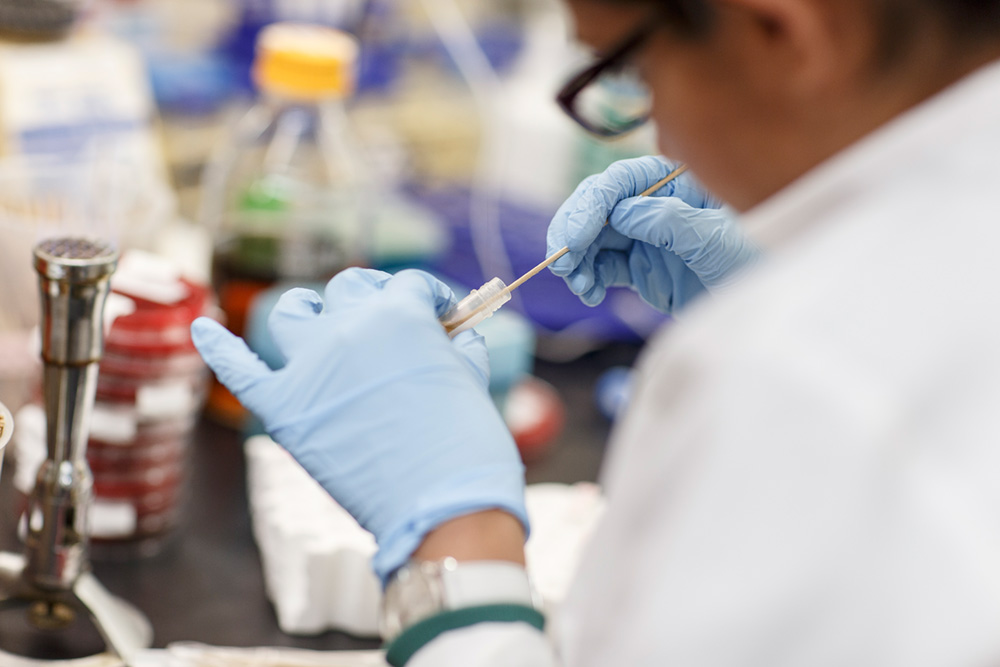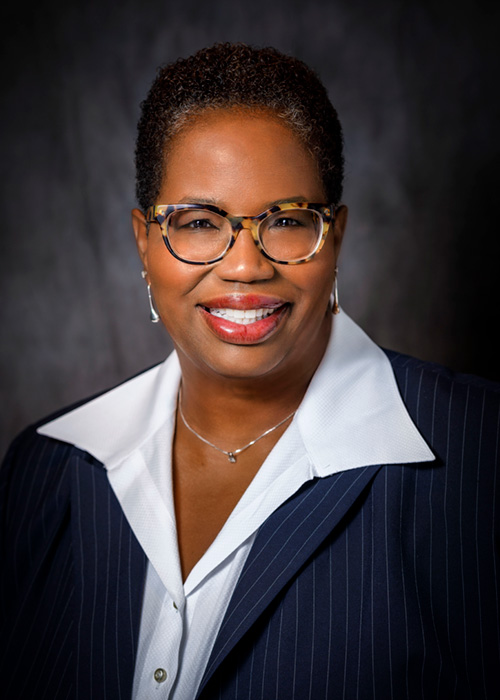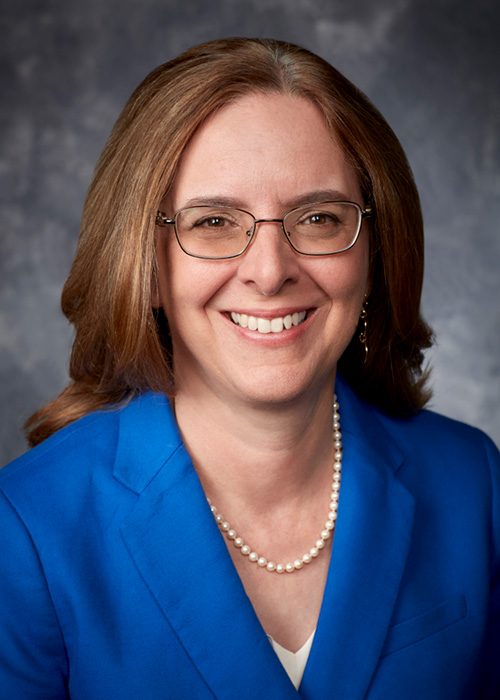UTD Aims To Advance Gender Equity in STEM Faculty with NSF Grant
By: Kim Horner and Phil Roth | Sept. 1, 2021

The University of Texas at Dallas has been awarded a $1 million, three-year National Science Foundation (NSF) ADVANCE grant to enhance its efforts to recruit and retain more women tenure-track faculty members in STEM fields.
“This project will help us systematically transform the campus in ways that will expand and enrich the diversity of our faculty in science, technology, engineering and mathematics,” said Dr. Stephanie G. Adams, principal investigator on the grant, dean of the Erik Jonsson School of Engineering and Computer Science, and the Lars Magnus Ericsson Chair in Electrical Engineering. “We’re excited about this opportunity to promote a more inclusive climate and recruit more women in STEM fields and beyond.”
ADVANCE: Organizational Change for Gender Equity in STEM Academic Professions supports the development, implementation and evaluation of innovative systematic change strategies that promote gender equity for STEM faculty. Since 2001, the NSF has invested more than $270 million to support projects at more than 100 universities and nonprofits, including UT El Paso and UT Rio Grande Valley.
The UT Dallas project, called ASPIRE2 (Adapting Successful Practices to foster an Inclusive, Respectful, and Equitable Environment), focuses on three areas: climate, identification and recruitment, and retention and advancement.
“This project is about identifying and recruiting women who are educated and ready to be part of the faculty at UT Dallas — ensuring that they know about our searches and are included in our applicant pools,” said Dr. Inga Musselman, UT Dallas provost, vice president for academic affairs and the Cecil H. Green Distinguished Chair of Academic Leadership. “It’s also about creating a climate where women know they are welcome at UT Dallas, where they can thrive and where they want to stay.”
Musselman, co-principal investigator on the project, said the grant will support expansion of the University’s efforts in recent years to put processes into place to increase the number of women and underrepresented minority groups in its applicant pools and to educate search committees about best practices in evaluating applications.
“This project will allow us to dedicate staff and funding toward institutionalizing and growing our strategies to attract and retain women faculty, particularly in STEM fields,” she said.

“This project will help us systematically transform the campus in ways that will expand and enrich the diversity of our faculty in science, technology, engineering and mathematics. We’re excited about this opportunity to promote a more inclusive climate and recruit more women in STEM fields and beyond.”
Dr. Stephanie G. Adams, dean of the Erik Jonsson School of Engineering and Computer Science, and the Lars Magnus Ericsson Chair in Electrical Engineering
The project’s goals align with the University’s Strategic Plan and recommendations from the Living Our Values Task Force to recruit women and members of underrepresented groups for faculty, staff and administrative positions, and to periodically survey the campus to ensure that the culture is welcoming and inclusive.
Although the numbers are increasing, universities nationwide face a shortage of women candidates available for STEM faculty positions due to factors such as stereotypes and biases that have led fewer young women and girls to pursue STEM, according to the American Association of University Women.
The percentage of women in science, engineering or health fields in tenured or tenure-track faculty positions nationally increased from 26.4% in 1999 to 38.5% in 2019, according to the NSF National Center for Science and Engineering Statistics. The percentage of women is lower in engineering, where women make up 17.4% of tenured or tenure-track faculty, according to the Society of Women Engineers.
As of last fall, 13.5% of tenured and tenure-track faculty in STEM areas of study at UT Dallas were women. In addition, 0.7% of STEM faculty were underrepresented women — a group that also is a focus of the grant.

“This project is about identifying and recruiting women who are educated and ready to be part of the faculty at UT Dallas — ensuring that they know about our searches and are included in our applicant pools. It’s also about creating a climate where women know they are welcome at UT Dallas, where they can thrive and where they want to stay.”
Dr. Inga Musselman, UT Dallas provost, vice president for academic affairs and the Cecil H. Green Distinguished Chair of Academic Leadership
The ASPIRE2 project, which will be based in the provost’s office, includes an internal steering committee made up of Musselman and a number of deans from throughout the University, an external advisory board, an evaluation team and leaders to carry out plans in each of the three focus areas:
- Climate – The team will conduct training for deans, department/program heads and other faculty members; establish a department/program head council; develop an advocates and allies program; administer a biennial climate survey; and develop equity dashboards for the University and individual schools.
- Identification and recruitment – The team will pursue initiatives including career development workshops for students, postdocs and junior faculty to identify qualified candidates; focus attention on the composition of and training for search committees; and provide faculty liaisons to search committees.
- Retention and advancement – The team will pursue best practices for the retention and advancement of women. Activities will include expansion of the campus mentoring program, development of employee resource groups for women faculty in STEM and faculty workshops on promotion.
“The best thing that you can do is to create a climate that’s welcoming to all faculty, including underrepresented minority faculty and women faculty, a climate that is so strong that it would encourage those faculty to grow and thrive at UT Dallas,” Musselman said.
Adams, who brings experience as a past president of the American Society for Engineering Education, said she looks forward to putting the plan into action.
“This plan will result in greater gender equity in STEM disciplines that can be scaled to all schools on campus,” Adams said. “We are ready to apply programs, initiatives and lessons learned from the ADVANCE community to harness our own internal momentum to create and maintain a more inclusive climate.”
Media Contact: Kim Horner, UT Dallas, 972-883-4463, kim.horner@utdallas.edu; Phil Roth, UT Dallas, 972-883-2193, phil.roth@utdallas.edu, or the Office of Media Relations, UT Dallas, (972) 883-2155, newscenter@utdallas.edu.





